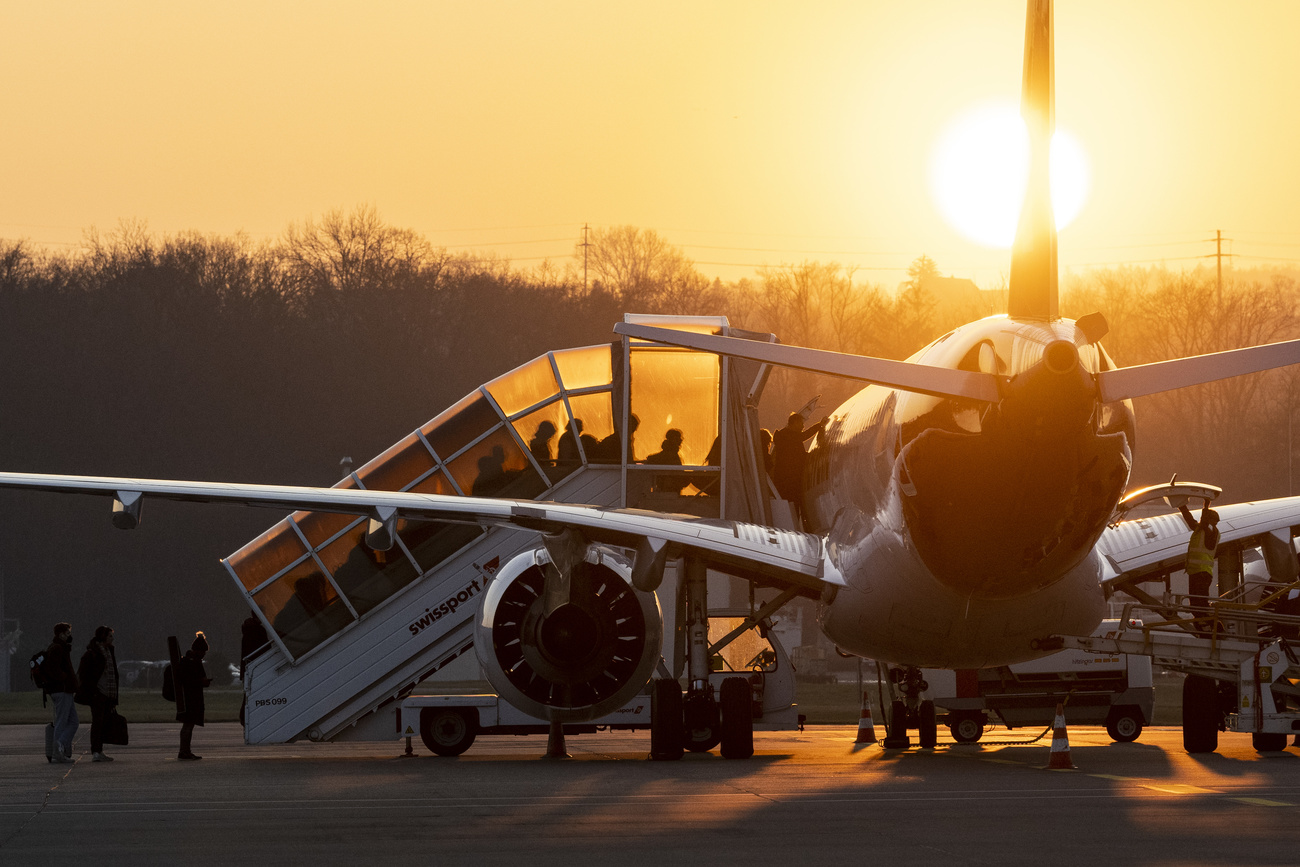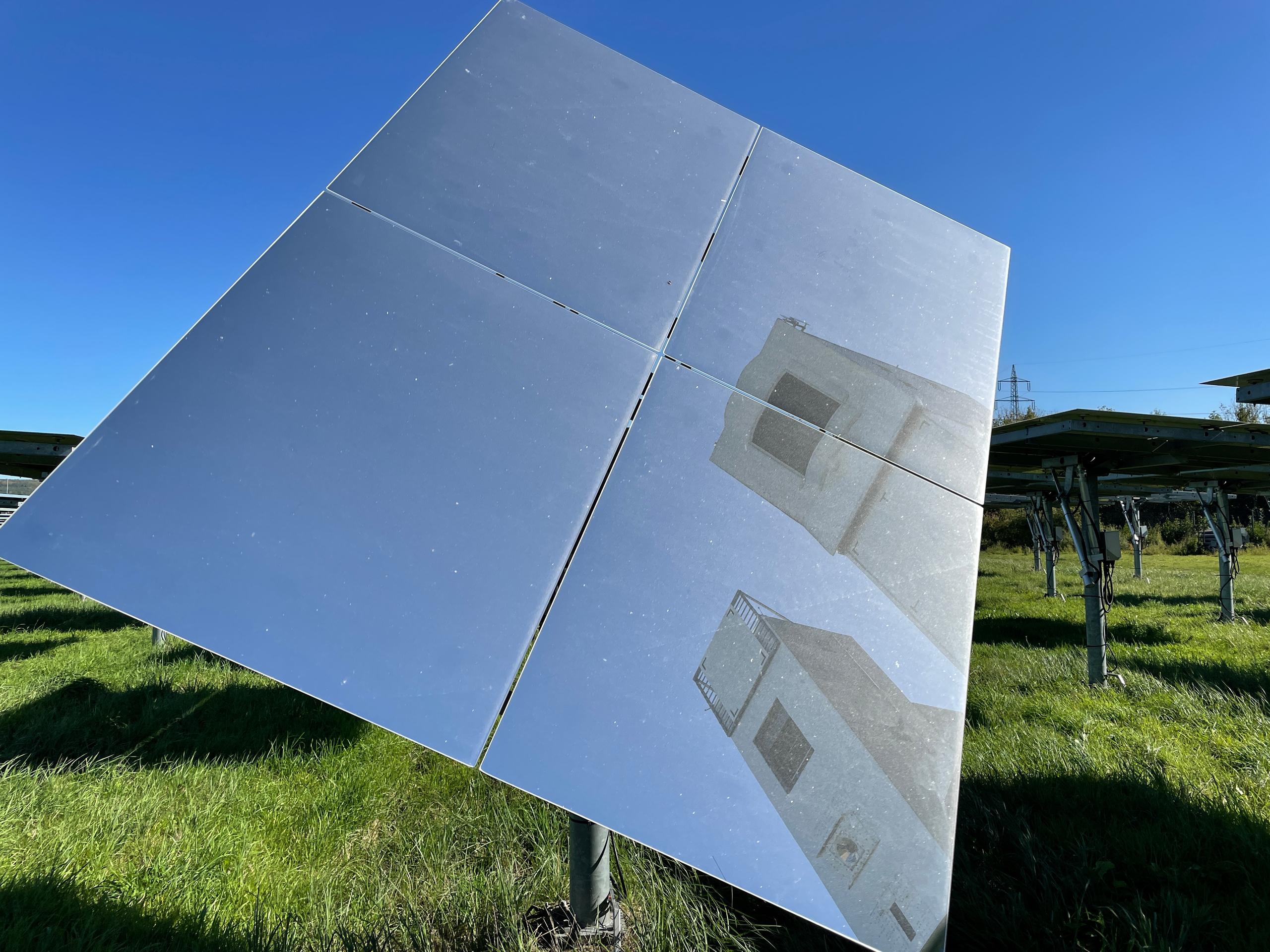
Carbon-neutral flying by 2050 is possible, says Swiss government

The Swiss aviation sector should be able to meet the country’s net-zero CO2 emissions target by 2050. But it must invest massively in research and development, according to a new report.
On Wednesday the Federal Council (executive body) approved a report on carbon-neutral flying by 2050 that sets out technical measures for climate-friendly aviation.
The use of sustainable aviation fuels (SAF) will be the key measure to reduce fossil CO2 emissions, the government said in a press release in reply to a postulate from the House of Representative’s Environment Committee.

More
The Swiss firm that wants to power planes with green jet fuel
Efficiency savings in aircraft fleets and operations will also play a role. But hydrogen-fuelled and electric aircraft can only marginally reduce emissions – at least up to 2050, the report’s authors stated.
Instruments already exist or are being developed to achieve Swiss climate objectives. The CO2 Act for the period after 2024 also provides for new mechanisms to encourage the aviation industry to act.
The federal government will introduce new subsidies to support the aviation industry in its efforts to become carbon neutral. With the existing instruments and those planned from 2025, the federal government can set a course for a 70% reduction in carbon emissions from Swiss air traffic, the report said. But in order to fully achieve the net-zero target by 2050, carbon sequestration and storage (negative emission technologies) is also required.
Translated from French by Deepl/sb
This news story has been written and carefully fact-checked by an external editorial team. At SWI swissinfo.ch we select the most relevant news for an international audience and use automatic translation tools such as DeepL to translate it into English. Providing you with automatically translated news gives us the time to write more in-depth articles.
If you want to know more about how we work, have a look here, and if you have feedback on this news story please write to english@swissinfo.ch.

In compliance with the JTI standards
More: SWI swissinfo.ch certified by the Journalism Trust Initiative




























You can find an overview of ongoing debates with our journalists here . Please join us!
If you want to start a conversation about a topic raised in this article or want to report factual errors, email us at english@swissinfo.ch.